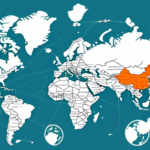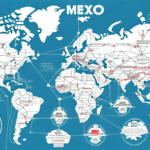Understanding UPS International Shipping Rates from the US to Nigeria
In today's globalized world, international shipping has become an integral part of businesses and individuals alike. The ease of shipping goods and packages across countries has opened up new avenues for trade, commerce, and personal connections. However, shipping across borders also involves several variables, including shipping rates, customs procedures, and documentation requirements. As such, it's essential to understand these important factors, especially when shipping from the United States to Nigeria with UPS.
Introduction to UPS International Shipping
UPS is a global leader in logistics and delivery services, offering a wide variety of international shipping options. With its extensive network of airlines, ground transportation, and customs clearance agents, UPS provides reliable and efficient services worldwide. Whether it's documents, packages, or freight, UPS offers customized shipping solutions that meet the needs of businesses and individuals.
One of the key advantages of UPS international shipping is its advanced tracking system. Customers can track their shipments in real-time, from the moment it leaves the sender's location to the moment it arrives at the destination. This provides peace of mind and allows for better planning and coordination of delivery. Additionally, UPS offers a range of value-added services such as insurance, customs brokerage, and packaging solutions to further enhance the shipping experience.
The Importance of Understanding Shipping Rates
Shipping rates are a crucial consideration for any international shipment. The costs associated with shipping can significantly impact your bottom line, especially if you're in the business of importing or exporting goods. Understanding shipping rates upfront can help you plan and budget more efficiently, avoid unexpected costs, and identify ways to reduce your shipping expenses.
Key factors affecting shipping rates include:
- Mode of Transportation: Different modes such as air, sea, or land have varying costs and delivery times. For example, air freight is typically faster but more expensive, while sea freight is more cost-effective for larger shipments but takes longer.
- Destination Country's Customs Regulations: Customs fees, taxes, and duties can add significant costs to your shipment. Compliance with regulations is essential to avoid delays or seizures.
- Package Weight and Dimensions: Heavier and larger packages generally incur higher shipping costs.
For more detailed insights, refer to [UPS's official guidelines](https://www.ups.com/us/en/services/international.page) on international shipping.
Shipping from the US to Nigeria with UPS
Shipping from the US to Nigeria can be challenging due to several factors, including distance, transportation infrastructure, and customs procedures. However, UPS offers several shipping options, including air and ocean freight, to meet your specific needs. When shipping to Nigeria, UPS provides a range of delivery services, including UPS Next Day Air, UPS Worldwide Express, and UPS Worldwide Saver, among others. Each service has its unique features and pricing, so it's essential to choose the one that's right for you.
Benefits of using UPS for shipping to Nigeria include:
- Extensive Network: UPS has a broad network of local partners and agents, facilitating seamless customs clearance and delivery to remote locations.
- Real-Time Tracking: Stay informed about your shipment's status at every step with UPS's advanced tracking system.
- Sustainability: UPS is committed to reducing its carbon footprint through initiatives like using alternative fuels and optimizing delivery routes.
Learn more about UPS's commitment to sustainability [here](https://www.ups.com/us/en/services/sustainability.page).
Determining Weight and Dimensions for Your Shipment
The weight and dimensions of your shipment play a critical role in determining shipping costs. UPS uses a Dimensional Weight Calculator to determine the billable weight of your package, which considers the package's weight, length, width, and height. Accurately measuring and weighing your package before shipping can help avoid discrepancies in your shipping costs.
Consider the following when determining your shipment's weight and dimensions:
- Accurate Measurement: Use precise measuring tools to get the exact dimensions and weight of your package.
- Packaging Materials: Choose lightweight yet sturdy packaging materials to protect your items without significantly increasing the shipment's weight.
- Carrier Restrictions: Different carriers may have varying weight and size restrictions. Always check with your carrier before shipping.
For more information, visit the [UPS Dimensional Weight Calculator](https://www.ups.com/us/en/shipping/rate-calculator.page).
How to Calculate Shipping Rates with UPS
UPS offers a variety of tools to help you calculate shipping rates based on your package's size, weight, destination, and chosen service level. These tools include the UPS Rate and Service Guide, which is updated annually and provides detailed pricing information for all UPS services. Additionally, you can use the UPS shipping calculator on their website to estimate shipping costs before dispatching your package.
Businesses can benefit from UPS's discount programs:
- UPS Business Solutions: Enroll to access customized shipping solutions and discounted rates based on shipping volume.
- Non-Profit and Small Business Rates: Special rates are available for non-profit organizations and small businesses. Contact a UPS representative or visit their [website](https://www.ups.com/us/en/help-center/special-services.page) for more details.
Factors that Affect International Shipping Rates
Several factors may affect shipping rates, including:
- Destination Country: Different countries have varying import regulations, taxes, and duties.
- Package Weight and Dimensions: Heavier and larger packages cost more to ship.
- Service Level: Faster delivery services typically cost more.
- Customs Clearance Procedures: Complex customs procedures can lead to increased costs and delays.
- Taxes and Duties: Import taxes and duties imposed by the destination country.
Understanding these factors can help you choose the right shipping option, reduce costs, and avoid delays in delivery. For a comprehensive overview, refer to the [World Bank’s guide on customs procedures](https://www.worldbank.org/en/topic/trade/brief/customs-procedures).
Tips for Reducing Your Shipping Costs with UPS
To minimize your shipping expenses with UPS, consider the following strategies:
- Consolidate Shipments: Combine multiple packages into a single shipment to take advantage of bulk shipping rates.
- Negotiate Rates: If you ship frequently or in large volumes, negotiate better rates with UPS based on your shipping volume and long-term contracts.
- Utilize UPS Services: Take advantage of services like UPS SurePost for lightweight packages and UPS My Choice to customize delivery options, which can help reduce costs.
- Use Online Tools: Utilize UPS’s online tools for tracking and managing shipments to ensure efficiency and prevent costly delays.
For more cost-saving tips, visit the [UPS Cost Management page](https://www.ups.com/us/en/help-center.page).
Understanding Customs Procedures When Shipping to Nigeria
When shipping to Nigeria, adhering to specific customs procedures is crucial. This includes providing detailed documentation, paying customs duties and taxes, and complying with import regulations. These regulations may vary depending on the type of goods you're shipping, so it's essential to consult with a customs broker or UPS customs expert for guidance. Failure to comply with these rules could result in the seizure of your shipment or additional fines and penalties.
Key considerations include:
- Prohibited Items: Nigeria has strict regulations on the importation of items such as firearms, drugs, and counterfeit goods. Attempting to ship these can lead to legal consequences.
- Required Permits: Certain goods, like agricultural products or chemicals, may require special permits or licenses before importation.
- Accurate Documentation: Ensure all shipping documents are accurate and complete, including detailed descriptions of goods, their value, and intended use.
For detailed customs requirements, refer to the [Nigeria Customs Service](https://www.customs.gov.ng/).
Tips on Packing Your Shipment for Safe Delivery
Proper packaging is essential to ensure the safe delivery of your shipment, especially when dealing with fragile or bulky items. Follow these tips to enhance package safety:
- Use Sturdy Materials: Utilize double-corrugated boxes and high-quality cushioning materials like bubble wrap or packing peanuts to protect your items during transit.
- Proper Labeling: Clearly label your package with detailed shipping instructions and contact information to avoid delays or misrouting.
- Secure Packaging: Ensure that all items are securely packed to prevent shifting during transportation.
- Utilize UPS Packaging Services: Consider using UPS's professional packaging and labeling services for added protection.
Learn more about UPS packaging solutions [here](https://www.ups.com/us/en/help-center/packaging-options.page).
Tracking Your Shipment with UPS
UPS provides a range of online tools and services to track your shipment's status and location in real-time. Utilize these tools to stay informed and ensure timely delivery:
- UPS Website: Track your package using the tracking number on the [UPS tracking page](https://www.ups.com/track).
- Mobile App: Use the UPS mobile app for on-the-go tracking and notifications.
- Notifications: Opt-in for email or text notifications to receive updates on your shipment's delivery status.
For detailed tracking options, visit the [UPS Tracking Services](https://www.ups.com/us/en/services/tracking.page).
Common Issues Faced When Shipping Internationally
International shipping comes with its set of challenges and risks. Being aware of these can help you mitigate potential issues:
- Customs Clearance Issues: Incomplete or inaccurate documentation can lead to delays or confiscation of goods.
- Delivery Delays: Factors like weather, customs inspections, or logistical challenges can delay shipments.
- Package Theft: High-value items are at risk of theft. Utilizing tracking and secure delivery options can reduce this risk.
- Damages During Transit: Improper packaging can result in damaged goods upon arrival.
To avoid these issues, work with a reliable shipping company like UPS, ensure compliance with all customs procedures, and use appropriate packaging and labeling.
Conclusion
Shipping from the US to Nigeria with UPS can be a complex process, but understanding the shipping rates and procedures can help you save time, money, and avoid any shipping-related issues. By following the tips outlined in this article, you can ensure that your international shipment reaches its destination safely and efficiently.






















